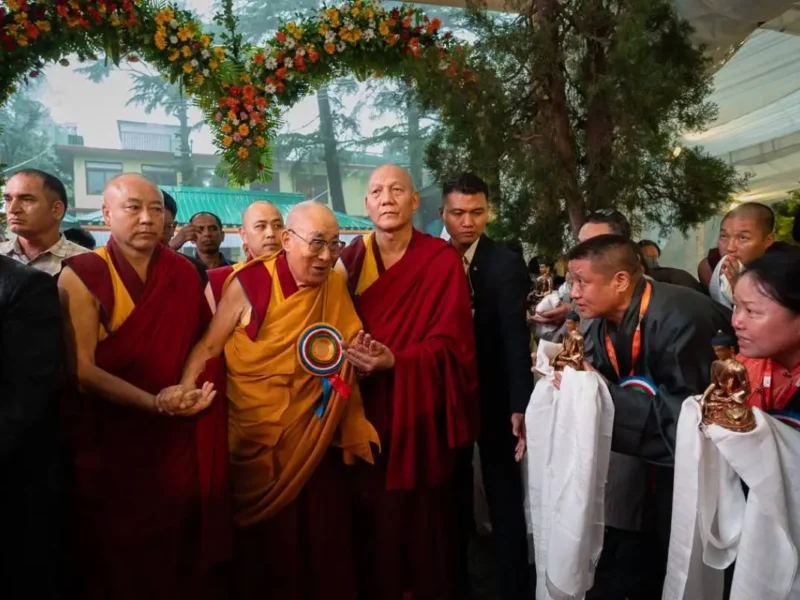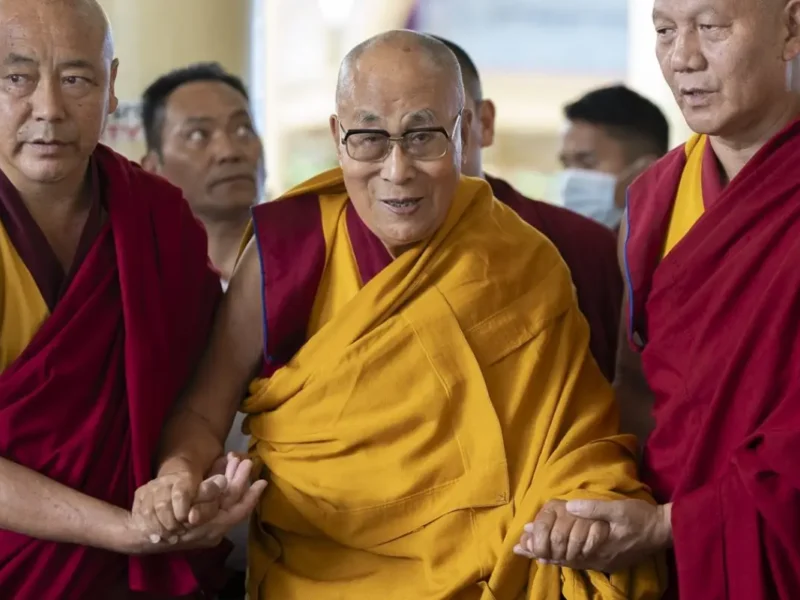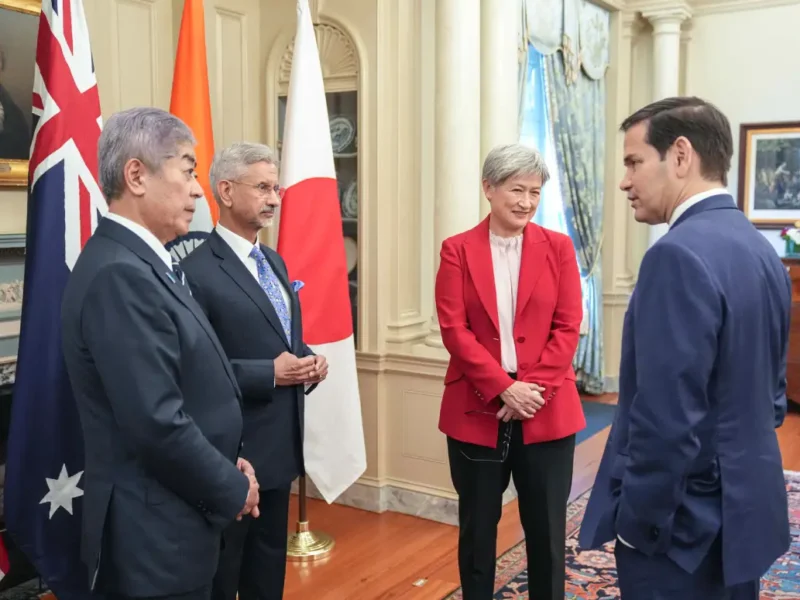
Indian American Entrepreneur Deepak Sekar, Founder of Chowbotics, Now Taking on New Venture in Prof Jim
Deepak Sekar gave up a high-paying job to pursue a life as an entrepreneur. He was successful with his first venture in Chowbotics. Now he is looking to do it again with stealth mode startup Prof Jim. (photo provided)
By GIOVANNI ALBANESE Jr./India-West Staff Reporter
An Indian American entrepreneur who helped build up food prep company Chowbotics is now looking to do the same for a new venture, Prof Jim.
Deepak Sekar founded Chowbotics in 2014, serving as the company’s president and chief executive until 2019, and stayed on as board director until the 2020 sale to San Francisco-based DoorDash.
The native of Chennai, who grew up in a family of engineers, in June 2020 founded Prof Jim, a stealth mode startup that leverages AI for improving education.
The mission of the Sunnyvale, California-based startup – named in honor of Sekar’s doctoral adviser, Prof. Jim Meindl, who he says was the best teacher he ever had – is to ensure engagement in education for everyone.
Sekar says the inspiration of the company was driven from his experience at home with his kids following the surge in COVID-19 throughout the country that led to distance learning for schools.
“During the COVID pandemic, my kids moved to online learning for their schooling. Seeing their experience, it seemed to me that we could improve e-learning dramatically,” he explained to India-West.
“I had a bunch of ideas on how to do that, and launched my company, Prof Jim, to commercialize those, in partnership with an entrepreneur friend from Hyderabad,” he added.
Sekar said he is investing in the company from his earnings from the DoorDash acquisition of Chowbotics. (See India-West story here: https://bit.ly/3w74xEZ) Unlike his previous company, Prof Jim is taking on a more virtual approach.
“This company is one where we don’t have a central office – everyone works from their homes. This allows us to hire the best talent from around the world, without worrying about where they are located,” Sekar told India-West in an email.
The company has team members in Hyderabad, Delhi, Ohio and Silicon Valley.
Right now, the company is still in stealth mode, building its first product, with hopes to launch next year.
Sekar, following in the footsteps of his grandfather (chief engineer of the Tamil Nadu Electricity Board), his father (engineer and CTO at HCL Comnet) and 70 percent of his family, pursued an engineering career.
He earned an electrical engineering undergraduate degree from the Indian Institute of Technology in Madras in 2003 and followed that up with a master’s and doctorate in electrical and computer engineering from Georgia Tech.
Sekar says of following in the family footsteps, “Thankfully, it worked out well for me!”
Upon finishing schooling, he said he had a dream to work at Intel, in a research lab in Portland, Oregon. Intel had supported his doctorate studies with a fellowship as well, so he had opportunities there.
“However, my girlfriend said she would marry me only if I moved to Silicon Valley – where she had a job she loved,” he said.
He listened.
“It was one of the best decisions I made,” he said.
Sekar went on to land a job at SanDisk, married his girlfriend and they have gone on to have two kids.
He noted in his email to India-West that in his first three months at SanDisk, he and his colleagues developed a dozen patents on how to store 3 bits of memory in a single flash memory transistor.
“These patents are now used in a good portion of flash memory cards sold around the world. That was the moment I knew I’d found my life’s calling – invent new products, and commercialize them,” he explained.
Sekar has gone on to become an inventor on 160 issued patents, which puts him on a list of some of the more prolific inventors in history, including Thomas Edison, George Westinghouse and other luminaries.
After SanDisk, he spent two years as chief scientist at MonolithIC 3D before joining Rambus as a director. It was there where he managed a sizeable team.
“It was a fabulous experience – I loved working with the people who reported to me, they were really good at what they did, we made enormous progress in very little time and we always looked out for each other,” he reminisced of his time there.
His time at Rambus – which concluded in August 2015 – intersected with his founding of Chowbotics in the fall of 2014.
Sekar said he became inspired to found the company when he was cooking a meal for the family and thought it could be an automated process, so as not to spend so much time in the kitchen cooking.
“Finally, after one long day of cooking for a family event, I decided to build a food making robot,” he recalled to India-West.
“The first robot I built made Indian food, the kind of food my wife and I eat at home. A couple of my friends helped with a portion of the prototyping as well,” he explained.
After building the prototype, Sekar said that a person who owned 15 McDonald’s stores saw it and asked if he could build a robot for his restaurant, adding that if he focused on salads, it would be easier to commercialize.
Believing he had a decent shot at succeeding, he invested his personal cash into the project, which led to Sally the Salad Robot.
“I was fortunate to have early employees who were superstars – we collaborated together very well and built a very good company,” he said.
Sally robots are now in 250 locations around the world, making salads and bowls in grocery stores, office cafeterias, hospitals and other locations.
During Sekar’s time as Chowbotics CEO, the company raised $20 million in venture capital, grew the company’s sales to $5 million and doubled its revenue quarter-over-quarter (in 2019).
The National Restaurant Association honored Sekar and Chowbotics with the Kitchen Innovations Award in 2019, which recognizes leading developments in the restaurant business every year.
“We essentially pioneered the food robotics space. Today, inspired by our product and progress, dozens of companies are trying to develop food robots,” he said, adding that “Doordash acquired Chowbotics in 2020 to build out their food robotics efforts.”
Sekar says that, even though many people find it largely risky to leave a high-paying job to become an entrepreneur, going a year or two without pay, he feels it’s worth the plunge.
“My own experience tells me that if you have a two-income family, or enough money saved, the risk of starting your company is small,” he noted.
In his six years at Chowbotics, Sekar claims he learned more than in the rest of his career put together.
“I picked up skills with sales, finance, marketing, mechanical engineering, software and so many other things. It was also enormously satisfying to build a team from the ground up and take a new product to market,” he said.
The successful entrepreneur advises others interested to do so should follow suit, and follow their dreams.
“If you have a good idea which could make an impact, and have led projects to success in jobs in your past, don’t hesitate to start a company of your own. It’s worth it,” he added.




